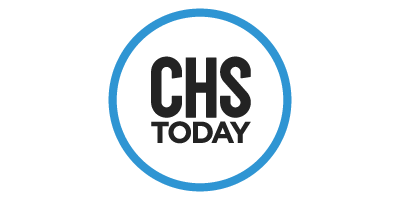The ins + outs of your home loan options
Earlier this month, we tackled a topic that is currently near + dear to my heart– Homebuying 101.
As I am in the throes of understanding what I can afford, Googling neighborhood scores, + updating my “dream home” board on Pinterest, I realized I still have no clue on what type of mortgage to get, how to calculate my fees, or where to even look for a kickback.
Thankfully, South State Bank provides ample mortgage resources– walking you through the options + ultimately setting you up with a loan officer who will assist you in getting the keys to your new digs.
Need something with a fixed-rate? Got it. Need assistance in buying a vacant lot to start building your humble abode? Check. From conventional to government-issued, there is a loan program to meet your needs.
First things first– you need to consider the additional costs you’ll incur in owning a home vs. renting one. Making a mortgage payment vs. paying rent may seem ideal for a couple of reasons:
- In many cases, your monthly mortgage payment could be equal in cost or even cheaper than your current monthly rent
- Instead of paying a rent bill + never seeing that money again– making a mortgage payment will count as equity toward actually owning your home
However, owning a home means making additional payments that may typically be covered in your rent payment, such as:
- HOA fees
- Maintenance + repairs
- Homeowner’s insurance
- Property tax
- Utilities (electricity + gas, water, internet, trash, etc.)
Once you are sure that homebuying is right for you, you will need to meet with a mortgage lender to determine what you can afford– so you don’t waste time searching for homes that are too far out of your financial reach.
Together, you + the lender will calculate the ‘nitty gritty’– a.k.a. everything you can expect to pay, from one-time fees to monthly costs. They’ll also be able to let you know whether you are financially prepared to buy a home– or if you’ve still need to get your ducks in a row.
What you’ll need to bring to the meeting:
- Two of your most recent annual tax returns
- Recent pay stubs + employment history
- Bank statements from the past 2-3 months
- Prior residence history
What to expect:
- The loan officer will likely run a credit check + determine your credit score
- They will use your score, along with other relevant financial information, to calculate the approximate amount of the loan you qualify for. This is called “getting prequalified” for a loan.
Pro tip: If you’ve already done some thinking about your ideal price range + neighborhood, let your lender know. Bonus points if you bring in a copy of a listing that closely matches what you’re looking for.
Why does this help? Because the home you can afford in one neighborhood may be drastically different than what you can buy in another (due to factors like county taxes + flood insurance– which can vary greatly around the Lowcountry). Having this info handy will get you more accurate results during your meeting.
After understanding what you prequalify for, it is time to get to know your options. When looking for a home loan, there are several mortgage programs to consider. Read more below on a few of the available choices.
Conventional loans can be made to purchase or refinance homes with first + second mortgages on single family to four family homes.
There are two types: fixed-rate + adjustable.
- Fixed-rate: (the most common loan type)
- Typically offered in 15-year and 30-year periods
- 15-year loans feature constant monthly payments at a lower interest rate than 30-year periods. However, the monthly payments will be higher than the 30-year, as you’re paying off the loan twice as fast.
- Typically offered in 15-year and 30-year periods
- Advantages:
- Borrowers build equity much more quickly due to shorter amortization schedules
- Overall interest payments are dramatically lower than those on longer-term loans
- The interest rates are lower than 30-year loans
- Disadvantages:
- Monthly payments can be higher than those on 30-year loans
- Overall payments will be higher than a 30-year fixed rate
- 30-year loans have a constant interest rate + monthly payments that never change. This is a good option if you are staying in your home for at least seven years.
- Advantages:
- Offers the chance to borrow money on a long-term basis without having to worry about the interest rates or payments changing
- Monthly payments are lower than those on 15-year loans because the interest is amortized over a longer period
- Lower monthly payments free up money that borrowers can pour into investments that could potentially yield more than their homes
- Higher interest payment increases the amount consumers can deduct at tax time, potentially reducing their federal income tax liabilities
- Disadvantages:
- Borrowers build equity at a very slow pace because payments during the first several years go largely toward interest rather than principal
- The overall interest payment is higher because of the long amortization term
- The interest rates are higher than on 15-year loans
- Advantages:
- Adjustable: Loans where the interest rate + monthly payments increase + decrease as the market rates fluctuate. Usually, ARMs have an initial fixed-rate period, + tend to be less expensive if you plan on moving within seven years. After the fixed-rate period, the rate will fluctuate based on the index as agreed upon in the closing documents. To determine the index value, the lender adds a margin to that figure and recalculates the borrower’s new rate and payment. The process repeats each time an adjustment date rolls around.
These loans tend to be the most flexible as they are government-insured.
FHA refers to the Federal Housing Administration, which is a part Housing and Urban Development (HUD). Your down payment on a FHA loan can be as low as 3.5% of the purchase price, and most of your closing costs + fees can be included in the loan.
VA loans are fixed-rate + guaranteed by the U.S. Department of Veteran Affairs. These loans, which are made by private lenders, are only eligible to veterans regarding the purchase of a home as their primary residence. For loans up to $424,000, it is often possible for qualified veterans to obtain no down payment financing.
USDA loans are also called Rural Development Loans. They are government-insured + allow you to purchase a home with no money down. USDA Home Loans offer 100% financing to qualified buyers + allow for all closing costs to be either paid for by the seller or financed into the loan.
Looking to build your dream home? Construction-to-permanent loans transfer from the build process to financing your house once it is complete.
A South State Bank Construction Loan lets you finance up to 90% of the construction or home value (whichever is lower). You pay interest only during construction and can take advantage of flexible + quick disbursements. You can even use a construction loan for renovation.
Similar to a construction loan, if you are looking to grab a spot for a future residence, Lot Loans are available to assistance you in purchasing the property now, allowing you to build on your time frame.
Perhaps you scoffed at the price tags attached to these Charleston abodes, knowing that your residence is not a mere McMansion, but a masterpiece similar to Mozart.
A Jumbo loan gives you the option to finance your MTV Crib, but will require lower debt-to-income ratios, higher down payments, + higher FICO scores than a conventional mortgage. Both fixed + adjustable-rate mortgages are available. Jumbo loan amount are greater than $424,000.
Each type of mortgage has different financing opportunities, pros/cons, and terms to consider. Let your loan officer assist you– they are there to offer their expertise + understand the ins + outs of every angle. Once you have selected the loan which is right for you, you would start at step three in the homebuying process.
Remember: all loans are subject to credit approval. The interest on the portion of the loan that exceeds the value of the borrower’s principal dwelling may not be tax deductible. Be sure to consult a tax advisor for a full understanding.
Did you know there are even Physicians Loans for doctors, dentists, + veterinarians? Shout out to my boyfriend who is receiving those perks.
While determining which mortgage is right for you may seem like a daunting task, after sitting down with a loan officer, it really is just a matter of talking through your options + understanding what you qualify for. Let your bank work for you– it is their goal to assist you in financing your dreams.
I will keep you updated on my homebuying search. And perhaps even invite you to the housewarming party… I love flowers… just a FYI.
– Nikki











